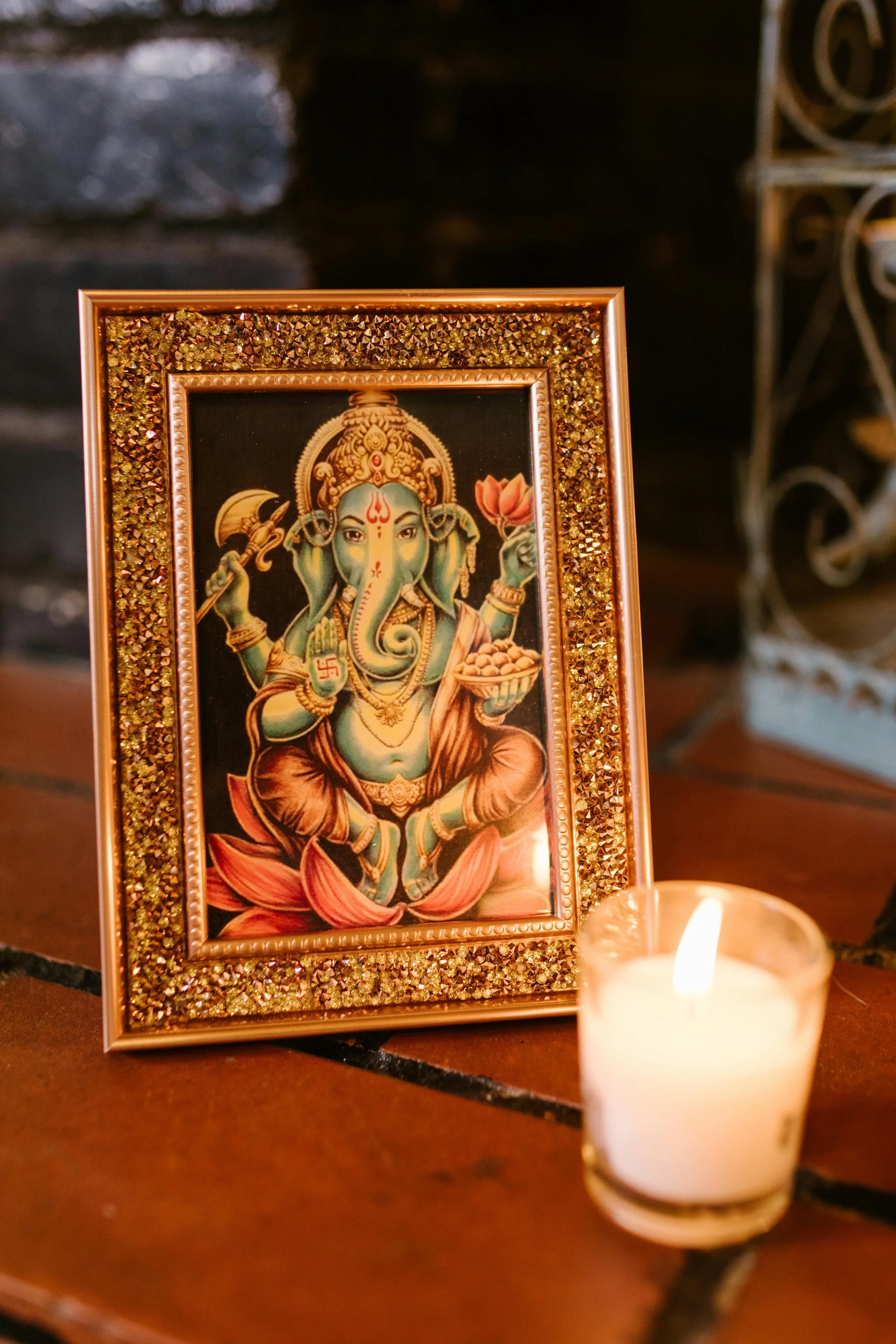Honoring the Ganesh Mantra: A Secular Interpretation Infused with Love
Om Gan Ganapataye Namah
One of the first mantras I learned as an avid student of yoga and meditation teacher was the Ganesh Mantra. I’ve been chanting it regularly over the past four years and have shared it with my yoga students during small-group Hatha Yoga sessions. Its warm reception has inspired me to further explore the philosophy behind the mantra, investigate different versions, and appreciate the powerful energy it immerses me in.
Literal Meaning
Literally, "Om Gan Ganapataye Namah" means “Salutations to Lord Ganesha”. Breaking it down into syllables:
- Om: A sacred syllable considered the sound of the universe, representing the ultimate reality or consciousness.
- Gan: A seed syllable associated with Ganesha, representing his essence.
- Ganapataye: To Ganapati (another name for Ganesha, where "Gana" means a group, and "Pati" means lord or master, so Ganapati means lord of the groups or multitudes).
- Namah: I bow or offer salutations.
Therefore, the literal translation is: "Om, I bow to Ganapati (Lord Ganesha)." Traditionally, this mantra is chanted to invoke Ganesha's blessings for removing obstacles and ensuring success in one's endeavors.
As a yoga and meditation teacher, it’s paramount for me to honor the essence and traditions of the practices I adopt and share with my students. I also believe in highlighting the power of these practices, even when they are recreated in other contexts. While the Ganesh Mantra is deeply rooted in Hindu spirituality, its principles and benefits can be appreciated in a secular context as well. The secular version of the mantra might translate to: "May I Overcome All Obstacles."
Secular Interpretation of the Ganesh Mantra
This affirmation focuses on developing resilience and the ability to navigate difficulties. Chanting the Ganesh mantra helps us tap into our inner resources, fostering strength and resilience to overcome obstacles.
Removing Obstacles: Focuses on problem-solving and overcoming challenges in daily life.
Seeking Wisdom and Knowledge: Encompasses lifelong learning, critical thinking, and intellectual growth.
Prosperity and Well-Being: Interpreted as striving for success, health, and happiness.
Spiritual Growth: Viewed as personal development, including emotional resilience, self-awareness, and inner peace.
The essence of the Ganesh Mantra can be translated into secular affirmations that promote resilience, wisdom, success, and personal growth. These principles are universal and beneficial regardless of religious beliefs.
From My Heart
The Ganesh Mantra has been a guiding light during some of my most challenging times, providing peace, clarity, and joy when I felt vulnerable, confused, and disheartened. Each opportunity to chant it makes my soul dance with every vibration. I am profoundly grateful to my teachers and their teachers for passing down this powerful mantra, making it accessible to me and my students.
Monica
Photo credits: Photo 1: Ufoops - Photo 2: RDNE (Pexels)
Join me in my rendition of the Ganesh Mantra, as it was shared with me through the ShambhavAnanda Yoga tradition.
As you chant this concise version of the Ganesh Mantra, I invite you to summon your inner strength and wisdom to overcome all obstacles. This mantra, perfect for meditation or moments requiring focus and determination, embodies the essence of an ancient Hindu prayer for resilience and clarity. It can be adapted to a secular context or to the belief system of whoever chants from an authentic heart.


